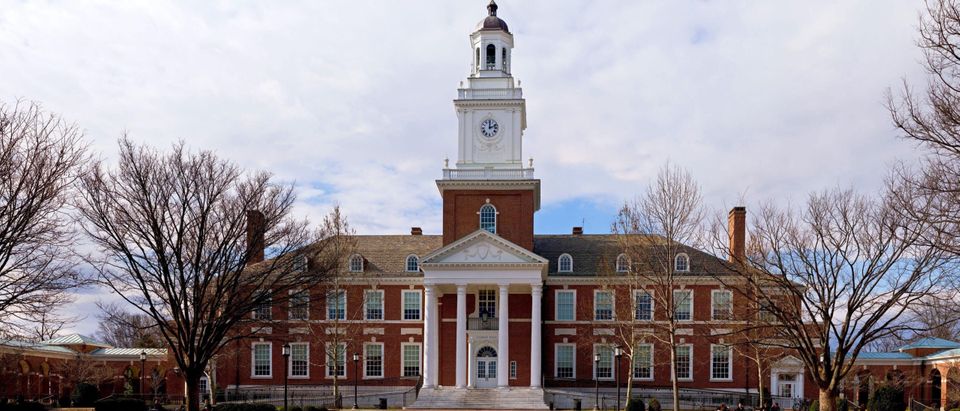The Supreme Court’s decision to hear two cases challenging affirmative action at Harvard and the University of North Carolina is a positive step towards university reform.
And not a minute too soon.
While our universities have become richer and more influential worldwide in recent decades, they’re also increasingly anti-American and intolerant.
They’ve accumulated a collective endowment size approaching the annual GDP of a G20 country, about $650 billion by 2018. That’s more wealth than roughly 9 of 10 countries produce in a year, per World Bank figures. And they’re using it to indoctrinate our youth that the U.S. is a racist and colonial place which must be “transformed” to benefit mankind. How can a nation survive with generations of its people being taught to hate it?
America’s future depends on university reform “six ways from Sunday,” as the saying goes. Borrowing from that phrase, here are six literal ways divided among the Supreme Court, Congress and the public:
Supreme Court
End Affirmative Action: The cases brought by the Students for Fair Admissions against Harvard and UNC allege that Asian American applicants are less likely to be accepted than similarly qualified prospective students of other races. They claim such policies violate Title VI of the 1964 Civil Rights Act which bans racial discrimination. It’s a persuasive argument. The high court should teach universities that merit-based systems are legally and politically correct.
Uphold the First Amendment: Free speech is an internationally recognized human right. Yet it’s under fire as graduates instilled with totalitarian beliefs climb the ranks of society. The harsh mindset prevalent on campus now permeates corporate media and Big Tech which leads to de-platforming the right and shielding the left. Defining “hate speech” used to be relatively simple. Now it can mean anything contrary to liberal groupthink. As conservatives are harassed and silenced on campus, the high court should hear more of their cases and protect the Constitution.
Congress
Tax endowments: In 1988, Harvard and Yale had tax-free endowments worth over $4 billion and $2 billion, respectively. By 2021, those grew to $53 billion and $42 billion. The Tax Cuts and Jobs Act of 2017 finally allowed for taxing such endowments, yet the high threshold of $500,000 in assets per student meant only a few dozen, about 2% of 2,300 4-year institutions, had to pay anything on investment income, and just at 1.4%. It’s a drop in the bucket which should be expanded as proposed last year by Republican Arkansas Sen. Tom Cotton in the Ivory Tower Tax Act.
Curtail federal student loans: A 1993 change in policy pushed by President Bill Clinton allowed direct lending from the federal government to students, a major reason why the cost of tuition at public universities has tripled since then. Easily obtained government-backed loans with soft repayment terms leads to more loans. So colleges raise their prices. Today the government owns 92% of $1.7 trillion in student loan debt owed by 43 million Americans. Congress should sharply curtail federal student lending and privatize loans for advanced degrees to shift default risk to the banks. “Free” college “like in Europe” would be worse, leading to overcrowding, higher dropout rates and unfairly asking all taxpayers to pay for it.
The Public
Stop alumni donations: The 10 largest universities in America boast more than 5 million living alumni, myself included. Alumni can impact universities by stopping donations. It’s illogical to spend hard earned dollars financing rock-climbing gyms and legions of mostly far left 6-figure salaried administrators who create red tape and drive up students costs. I quit donating to my alma mater a decade ago over a disastrously handled scandal on campus which led to an outrageous $60 million NCAA fine. Why should alumni subsidize chaos?
Just say no: College for everyone sounds nice, but it’s a counterproductive myth. Though college graduates average more lifetime income than non-college grads, Bureau of Labor Statistics figures show about one-third are underemployed with jobs that don’t require a college degree. Many drop out in debt, others remain in debt for decades even after graduation. Given the high costs, intolerant learning environment, COVID lockdowns and non-discounted remote learning, it’s not surprising to see reports that enrollment has dropped by roughly 8% since 2019.
Of course not all colleges and universities need much reform. Some already resist destabilizing concepts like Critical Race Theory and other ideologies rooted in Marxism. Some universities overseas also may appeal to adventurous students. And accreditation by other means like on-the-job training combined with online learning can eventually supplant the current system.
But for right now, U.S. colleges and universities need sweeping reforms if we value our country, the democratic process and our freedom. The current trajectory is simply too destructive.
J.D. Gordon is a former National Security & Foreign Policy Advisor to Republican leaders Donald Trump, Mike Huckabee and Herman Cain. Previously, he served as a Pentagon spokesman during the George W. Bush Administration and is a retired Navy Commander.


